We talk to mum-of-two and blogger Olivia Siegl about the realities of ‘motherhood, mayhem and postpartum psychosis’ in her very funny new book
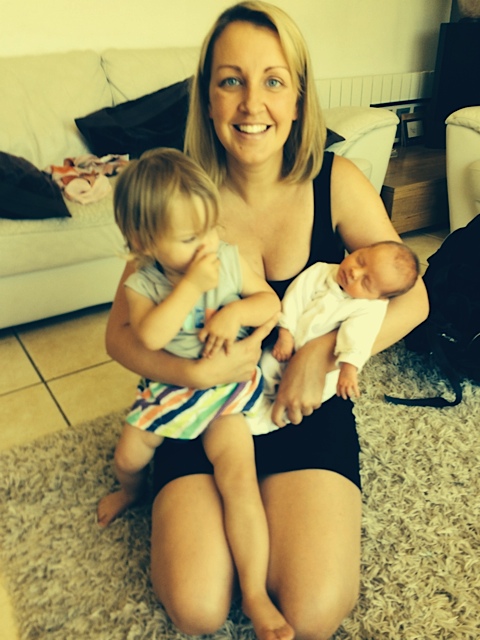
Hi, my name is Olivia and I am a mum of two little girls aged 5 and 3.5 years old. I am a really positive and outgoing person and love spending time with my husband and girls and socialising with friends and family.
Following the birth of both my little girls, I suffered with severe postnatal depression and postpartum psychosis which was the most terrifying time of my life, especially as I had no prior knowledge of either illness.
Due to my own personal battles with my maternal mental health, I am now passionate about raising awareness and empowering mums to take care of their maternal mental health and to be able to talk about all areas of motherhood – NO judgement!
I write regularly on all areas of motherhood on my blog The Baby Bible and for other publications including The Huffington Post and metro.
I am also proud to be a media volunteer for the charities Mind and Time to Change, where I talk about my own experiences to help raise awareness and to help other mums suffering to know they are not alone. Through talking about my experiences I’ve also set up The Every Mum Movement.
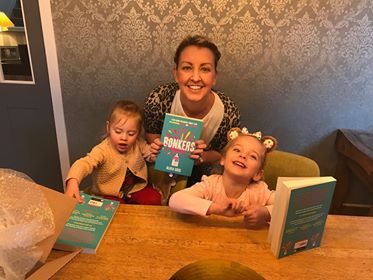
BONKERS is about empowering every mum to talk about all areas of motherhood – with NO judgement. Similar to the bonkers world of motherhood, the book covers everything from post-baby vaginas to postnatal depression, breastfeeding to ‘bouncing back.’
It touches on topics from having a premature baby to dealing with the judgement we face as new mums – it even has a few humorous rhymes thrown in for good measure. So, it has something for every mum out there!
My experiences of PND and postpartum psychosis were nothing short of terrifying. I was ill (without realising it) from the moment my eldest daughter was born and the illness continued throughout the first year of her life, through my second pregnancy and after the birth of my second daughter.
As mums and dads we should be saying to hell with the perfect parenting nonsense
My days were spent veering from being debilitated by my crippling anxiety, panic attacks, self-loathing and fear of leaving the house, to being so super-charged with nervous energy that I would rush around the house like superwoman, being taken over by my OCD and not able to rest, eat or sleep.
My illness both times progressed to me having psychotic episodes which still to this day make my blood run cold. It started with me seeing demons flying around the house threatening to kill Eva (just seven months old at the time).
It then manifested into what I came to call my ‘dark stranger,’ who would follow me around the house all day, threatening me and whispering to me menacingly that I was an unfit mother and that my children would be better off without me.
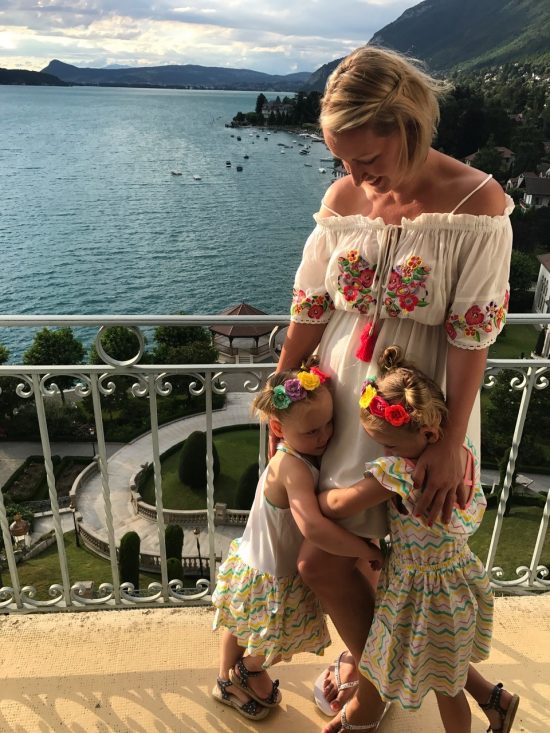
Being able to talk about my experiences openly and honestly without fear of judgement has played a crucial part in my recovery and was the reason why I started writing in the first place.
When I first became a mum, I couldn’t find anywhere that talked about the realities of motherhood, places that said, yes motherhood was magical at times, but that it was also difficult and challenging at times too.
There wasn’t anywhere or anyone that spoke about maternal mental health in a way I could relate to as a new mum, therefore I decided to start doing it myself.
I set up The Baby Bible blog and a secret Facebook group and wrote about all areas of motherhood and my experiences of maternal mental health under the ethos of supporting all mums with no judgement.
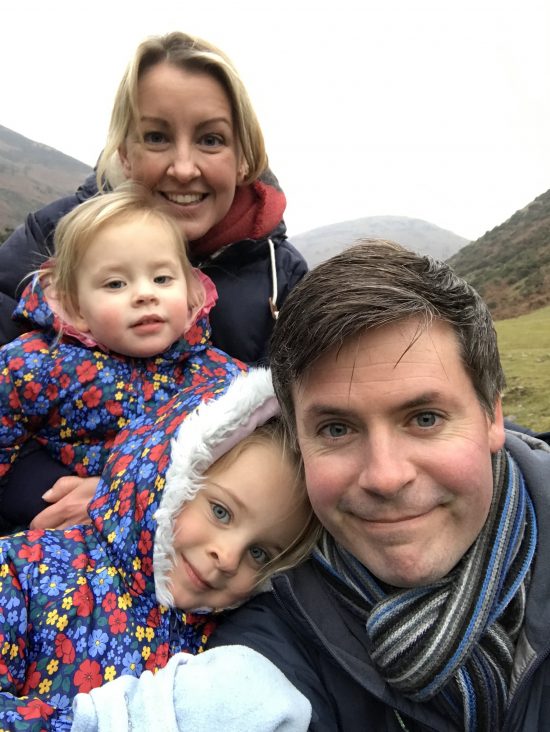
Taking care of tiny humans is crazy, wonderful and challenging in equal measure. However, what makes it even more challenging is the pressure we all feel from what I like to call (and mention often in my book as) the ‘perfect parenting propaganda’.
This is something we are all bombarded with (mums and dads alike) on a daily basis. From how the perfect family should look, the activities we should be doing, the decisions we should be making, the career choices we should be striving for, the perfect home we should be creating and when our perfect children should be applying to Mensa!
As mums and dads we should be saying to hell with the perfect parenting nonsense, and instead allow ourselves to be proud of the realities and challenges that we all face. We should try to get through as parents and celebrate the fact that we are taking care of our families in the best possible way.
I can see the pros and cons regarding social media when it comes to parenting. I can see the negative side when we compare ourselves to the perfect images and posts about how parenting ‘should be’.
However, I am also extremely proud of the new movement in social media that has occurred over the last few years. More online commentators are celebrating and showcasing the more realistic images of parenting and being honest about our experiences.
When I became a mum five years ago, I struggled to find anywhere that offered the more realistic and honest view of parenting and found there to be a lot of judgement out there on the decisions we make as parents. Therefore, I feel extremely proud of The Baby Bible for being one of the first to make a stand and offer support to all mums – no judgement.
Go easy on yourselves, know you are doing a great job and you are good enough parents
It is vital that we all support each other. We are all in the same boat after all, and will have been in the same parenting shoes at some point or another.
Life in general and life as a parent is hard enough without then having to deal with the judgement of others just because you do things different to them.
We need to support each other, be able to talk about all areas of parenthood (even the most challenging) without fear of judgement. We should know that as long as we are doing what’s best for our family and ourselves then we are doing a bloody amazing job!
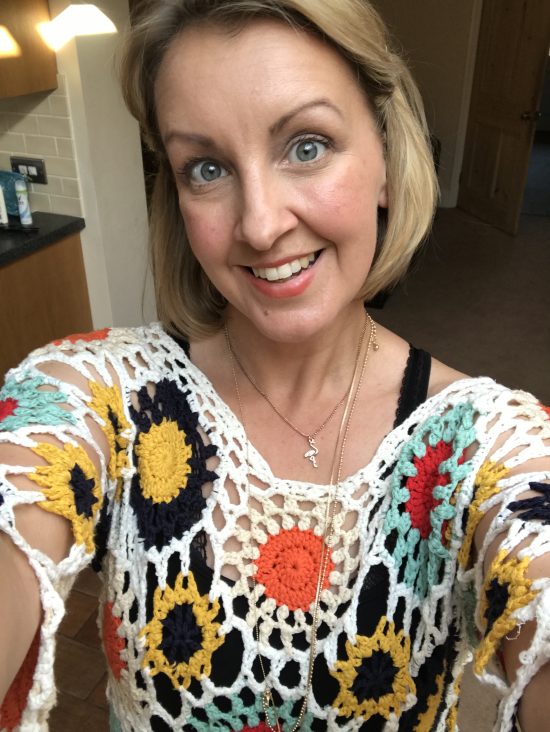
I love being a mum of two, and with just 18 months between them, they keep me on my toes constantly!
The ‘lows’ have all been pretty much based around the logistics of getting two tiny humans fed, dressed and out the door at the same time. This most days has seen me running behind them, half dressed, hair everywhere and in need of a lie down.
Oh, and wrestling with a toddler tantrum in the middle of a soft play, with a screaming newborn needing a feed and a change from a nappy explosion was also another ‘highlight!’
However, the highs, even the ones that at the time felt like I must be crazy (for instance venturing on a five-hour road trip to take them to Peppa Pig World on my own) have more than made up for them all.
I think my most favourite high point is probably the one that may seem the most ‘normal’, and the one that happens the most. It’s when we are walking down the street or at the park together and I feel their gorgeously squidgey little hands in mine and I think all is right with the world. Even if just for the next five mins, ha ha!
To go easy on yourselves, to know that you are doing a great job and are good enough parents and don’t let anyone else make you feel otherwise.
To all parents-to-be I would ask every mum and dad to alongside getting themselves physically and practically ready to be parents, that they also spend time getting themselves mentally prepared too.
It is so important that all mums and dads take care of themselves physically and mentally.
Every parent-to-be should be aware of what maternal mental health is, as well as the different types of maternal mental health illnesses, the warning signs and where to get the right help and support.
Find out more about your emotions and mental health during pregnancy and after your baby is born.
Join our #HiddenHalf campaign to get postpartum mental health talked about more openly.